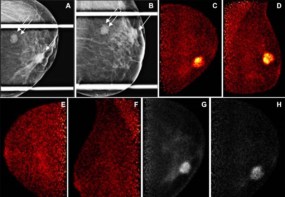French nanomedicine company Nanobiotix is teaming up with the University of Texas MD Anderson Cancer Center to run immunotherapeutic pre-clinical research using its NBTXR3 nanoparticles. NBTXR3 is a radiotherapy-activated agent designed to destroy tumours and metastasis through physical cell death, and to induce immunogenic cell death leading to specific activation of the immune system.
“The main objective of this collaboration is to analyse the microenvironment of tumours treated with NBTXR3 activated by radiotherapy, in order to increase and optimize the immune response,” explained Nanobiotix CMO Elsa Borghi.
The two-year project will evaluate the use of NBTXR3 activated by radiotherapy plus the anti-PD1 drug Nivolumab, in lung cancer models in vitro and in vivo. James Welsh from MD Anderson’s department of radiation oncology will be the Principal Investigator and lead the research programme.
The joint programme will have three main aims. Firstly, it will evaluate the abscopal response through the combination of NBTXR3 plus an anti-PD1 antibody and radiotherapy in specific and resistant murine lung cancer models, in order to measure NBTXR3’s potential to control metastatic disease.
Secondly, the project will evaluate whether NBTXR3 can further improve T cell activation for standard radiotherapy fractions compared to stereotactic body radiotherapy, notably by determining the activation of the STING (stimulator of interferon genes) protein in vitro in cancer cells with and without NBTXR3. Finally, it will continue characterization of the different mechanisms and types of cell death induced by NBTXR3 activated by radiation.
The joint program will also further explore the potential future use of NBTXR3 in immuno-oncology with checkpoint inhibitors, as well as its potential to control metastatic disease.
Last December, Nanobiotix received FDA approval of its investigational new drug (IND) application. The firm plans to launch its first clinical trial combining NBTXR3 with immune checkpoint inhibitors in the US in Q2 2018. This will be a multi-arm trial targeting a sub-population of advanced lung cancer and head-and-neck cancer patients.



